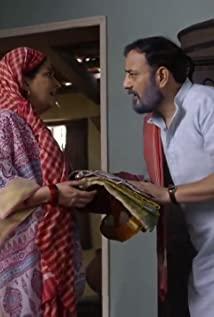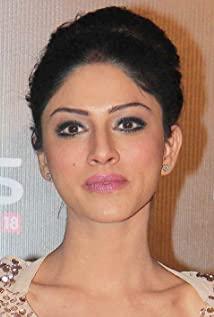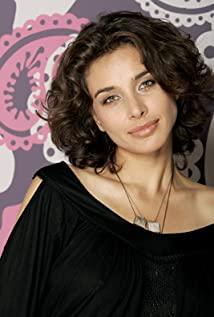If you want to be truly equal, you can't accept other gender preferences while demanding equality, otherwise, it's a little hypocritical, isn't it?
The timing of "Four More Cups Please" and "Everything Is Good" is quite subtle, and the comparison is particularly emotional.
"It's All Good" is positioned as a family ethics drama.
But its core, at least the core of marketing-driven content production, is 100% rooted in feminism (which has been biased by public opinion to an innocent word with a less derogatory color) that is now very popular among Chinese urban beauties. A stubborn girl who was treated differently by her parents when she was a child, ran away from home as a teenager, and returned home after becoming rich. This kind of setting is simply her own ten climaxes. But soon, Su Mingyu, who was quite strong in the first few episodes, soon became involved in the various shackles of morality, family affection, and filial piety among the three great beasts of the Su family.
"It's All Good" uses the gimmick of the feminist trend, and finally still talks about a traditional Chinese family ethical relationship. What's even more regrettable is that it did not provide a new idea for Chinese women's personal and social relations in modern times, but cleverly used Alzheimer's disease to recreate Su Mingyu's prison.
In contrast, the independent positioning and theme of women in "Four More Cups, Please" are much more straightforward and clear.
The four female protagonists Anjana, Damini, Umang and Siddhi in the play are between Lutheran and the vibrator, and resolutely choose the latter. There is no need to return to the family, and there is no need for the emotional redemption of the little white face. Some are just sisters concentric.
gender rights?
The idea of gender rights should not exist in the first place. Many so-called feminists who are biased by public opinion are too concerned about gender itself, and forget to discuss and fight from the perspective of a person should enjoy basic human rights. In 2018, the case highlighted in the biographical film "Gender Based" based on the legendary American female judge Ruth Bader Ginsburg was a discrimination case of male nursing. Ruth, who was a university professor at the time, saw that the equality between men and women represented by this case was at the legal level. possibility.
If you want to be truly equal, you can't accept other gender preferences while demanding equality, otherwise, it's a little hypocritical, isn't it?
"Four more cups please" also well grasps this major premise, so as to integrate women's equality, a major topic in Indian society, into various practical problems of life without being too extreme.
In terms of execution, "Four More Cups Please" is a work whose strengths and weaknesses cannot be ignored. Based on the current quality standards of British and American dramas, this drama may not even reach the level of Samsung (but the soundtrack, The visuals and outfits go well together).
The quality of the work itself is high or low, but the appearance of such a work that upholds women’s independence in India, a magical country with a vast territory, high population density, and severe social stratification, is a victory and worthy of praise in itself. .
Regardless of whether the actual audience of "Four Cups Please" is an Indian woman (or out of an oriental curiosity to satisfy the Western market), you can see that the writer and director's intention to promote women's independence is very obvious, and the main creator has nothing to do with the theme of female liberation. Do not shy away.
Although this theme is 21 years late compared to "Sex and the City" (God, "Sex and the City" has been on the air for so long), and it is no longer a new topic in Hollywood, but Asia, especially India, Gender discrimination remains a serious social problem. Compared with China's implicit sexism, India's discrimination against women is more direct.
But the stark themes, relatively conservative script and unsatisfactory execution give this refreshing Indian drama a strong tearing look.
gender and sexuality
When we talk about equality, the first thing we need to talk about is the control of our own bodies, and sex is often at the center of this discussion, the sex scenes (real and fantasy) in "Four More Cups Please", I believe they can fully express the intentions of the creators.
Sex itself may be concerned with orgasm, but social relationships related to gender are much more complex.
The four heroines in "Sex and the City" each undertake a certain aspect of self-pursuit in the process of women's independence and liberation. Samantha's self-concern has turned into a complete materialization of men. That sentence I love you but I love me more has hit the hearts of many independent women. Carrie's six years of smugness are also in part an (imperfect) expression of a constant focus on self (but who can be perfect), with each character dramatizing some aspect of female independence pushed to the extreme.
This drama also has a similar logic in character setting, Siddhi's arranged marriage, Damini's workplace ceiling, Anjana's single mother, Umang's bisexual dilemma. Female-themed film and television works seem to have always revolved around sexual liberation. This somewhat curious element is also the easiest to attract attention, cause topics and have an impact.
But the storylines created by the screenwriters for these character positions do not have enough detail or even enough courage to let go of the topic of sex to create three-dimensional and distinct characters. Streaming media is much wider than TV stations, and it is clear that the main creators are not taking advantage of this.
drama
In the first season, the screenwriter put almost all the problems encountered in the lives of Indian women on the table at one time, and the amount of information is very dense.
Indeed, it is surprising to see such a large number of such straightforward and bold accusations on TV dramas; but with ten episodes in a season and only twenty minutes in each episode, the screenwriter once So many social issues were thrown out, not only did not enrich the content level, but also wanted to discuss so many issues with the audience regardless of their importance, which led to unclear main lines and serious problems in time allocation.
This web of women's equal rights woven by the main creator seems delicate, but it is fragile in essence. Every question is on point, and the most occupied is the undressing video incident of Siddhi, which was also put in the season finale, and other more serious social problems were once again lightly taken as background boards.
Putting the story above the characters, especially in a TV series where characters drive the plot, is not a wise move.
More importantly, these issues that the screenwriters hurriedly put on the table have not been fully discussed, which has also resulted in the thinness of character creation.
What are you afraid of?
"What are you afraid of" at the beginning not only refers to the fear of the protagonist in the play, but also reflects to a certain extent that this TV series lacks the sharp and willing to withstand the pressure of public opinion in the style of "Sex and the City". strength and vitality.
Instead, there is a swaying focus on one thing and another, and you can clearly feel the "fear" and "timidity" of the main creative team about this problem.
On the one hand, they hope to hold high the banner of feminism, on the other hand, they know that the modern social atmosphere in India is far from being able to do so, and they are afraid of causing a strong counterattack from conservative forces, as Anjana said in the play:
There are a lot of misogynistic nasty bestial men in this world, and we have to protect ourselves until society changes.
The four women in the play are from high-income and well-educated wealthy classes in Mumbai. Except for fitness instructor Umang, who came from a small family, the other three are from wealthy or higher education families. Damini's father is also a journalist, not to mention Siddhi. Just looking at the decoration of the house can tell whether it is rich or expensive. Anjana is a lawyer. Although she is a single mother, she was a senior lawyer even when she became pregnant four years ago.
With their identities and statuses, Anjana will still be harassed by judges because of her female identity in court, Saddhi is still forced by her mother to go on a blind date and get married, Anjana's workplace ceiling makes it even more difficult for her to move, and Umang's workplace sexual harassment is not because she is crazy Wild tattoos have been reduced.
Then ask other women whose economic strength is weaker or not even fully dependent on their husbands, and how women live in other poverty-stricken areas (this range is very large) and how to fight.
The process of gender equality has never been a single-choice question, and there is no unified answer. With the continuous complexity and modernization of the social structure, gender discrimination is constantly wearing different coats, and the illusion is endless, which makes this question become a problem. It is more hidden, and it is more difficult to discuss, let alone to change and fight.
When the mainstream power finds that there is no way to continue to give priority to social resources and suppress it openly, it will change the name of what you need to fight for, or change the reason for existence, and you will have to be smarter to see clearly Motivation and logic behind the speech.
The malicious interpretation of the female workplace ceiling by the characters in the play is a very good example: people need courage to succeed, and they should not make excuses for their failures. It is implied that the patriarchy is an illusion, an excuse made by a woman herself.
This endless stream of new public opinions has added a lot of resistance to women's struggle for equal rights.
The main creator's concern about the tolerance of the big environment keeps the whole drama in a high-speed rotation from beginning to end. It seems to be full of power, but it can never reach the center.
This contradictory creative mentality even affects the performance of the actors, as if the actors themselves do not believe that it is safe for them to take the road of feminism in such a high-profile manner, and they will always be beaten back to the prototype by the people around them. Performance and insecurities.
Although the four female protagonists are all speaking those three-view lines, but against the backdrop of the whole environment, the volume of voice is quite unconfident, and the audience seems to be able to hear the characters behind the screen and the camera trembling voice is hard to believe.
This uncertainty does not come from the performance of the actors themselves. I am afraid it comes from the fact that the main creator is not determined to be jaded. The screenwriter has no way to confidently tell Indian women through the characters that they are as bold and fierce as they say in the play Standing up for your own women's empowerment is one of the best examples of India's swinging social ethos, as the season finale's theme: Dancing on the Edge.
But in general, the ten episodes of the first season have been rolled down one after another, and the goodwill has gradually increased.
Among them, it has a lot to do with the director's handling of emotional rendering. Each actress may not be able to express her own profession or identity smoothly and naturally, but the chemical reaction between the four female protagonists, after ten episodes. The brewing, turned out to be quite likable, and the high-quality, timely soundtrack also contributed.
Another highlight is the restoration of language usage. Just like "My Gifted Girlfriend" focuses on restoring the Neapolitan dialect, "Four Cups Please" has also truly achieved complete localization, allowing you to experience the native Indian language and English. The magic picture of mixed doubles.
In fact, doubles are not accurate, because in addition to Hindi, there are also different local dialects of Marathi, mainly because the background of the episode is set in Mumbai, and Mumbai is in Maharashtra, and Marathi is spoken, so there will be three languages in the play. Mixed use occurs.
This situation is not quite the same as the situation where Chinese and English are mixed in some domestic circles (especially the advertising circle), at least there is less vanity.
The history of British colonies has made English the official language commonly used in India in frequently developed areas, and it is popular among the highly educated population; and Hindi has also been vigorously promoted by the government as one of the official languages for many years. However, the effect is a lot worse than the popularity of Mandarin in China. In addition, the government's educational resources are not strong enough to resist local cultural forces, especially in most of the southern regions. The implementation of Hindi has never been able to achieve very good result.
However, in the elite class in the north, it is usually a mixed doubles of Hindi and English, but some people have risen to the elite class from small places, the south and the big cities, and they also have a relatively heavy native family background. Mixed fighting between languages and four languages is also a frequent occurrence.
I'm not saying that "Four More Cups Please" is of good quality, but under certain circumstances, you can see such a work being produced in such a country, and see how "other people's children" are It is also helpful to reflect on how you should do what you do.
Personal public number: DramaMatters
View more about Four More Shots Please reviews











